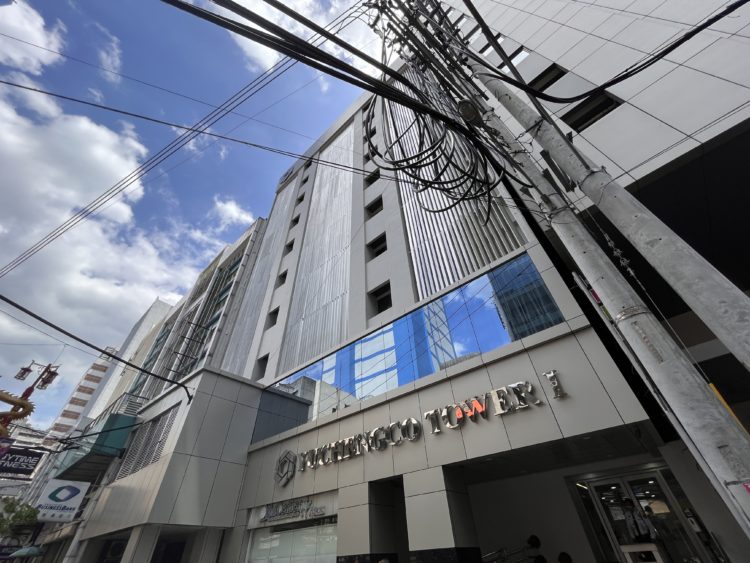At Future Enterprises Awards 2022, Maria Beatriz “Abet” Adversalo took the coveted CIO of the Year award in recognition of her role in initiating and managing Malayan Insurance’s Digital Transformation Program (DXI) programme.
Malayan's DXI strategy consists mainly of web applications, portals, APIs, OCR/RPA automation, analytics and cloud. This has resulted in digitalized policy issuance premiums of Php475M in 2021 (796% up from 2020); API-based premium of Php742M in 2021 (484% up from 2020); 114K man-hours saved through robotization leading to manpower reassignment; and Php9M annual savings in software subscriptions saved through low-code adoption, replacement of tools and modernisation.
In addition to her role as CIO, Adversalo was recently appointed as Malayan’s Customer Experience (CX) Champion. She also currently governs the Malayan Innov8 Squad, is Corporate Secretary of IT Interaction Philippines and serves in the YGC IT Council and Governance Board, and the IT and Innovation Committee of the Philippine Insurers' and Reinsurers' Association (PIRA).
FutureCIO took the opportunity to engage Adversalo not only on her efforts at Malayan Insurance but her approach to technology adoption, inclusion, and how to become a successful CIO in 2023.
Can you briefly describe your career prior to and during your early years at Malayan Insurance?

Abet Adversalo: I devoted 35 years to various IT positions in the insurance industry, both life and non-life. Before joining Malayan Insurance, I was the IT head of Sun Life Grepa Financial, a joint venture company between Sun Life of Canada, Philippines and the Yuchengco Group of Companies, one of the biggest conglomerates in the Philippines under which Malayan Insurance belongs.
In my early years with Malayan, I architect the platform for creating and integrating new web-based applications to the company’s legacy system and subsequently laid down its digital transformation plan.
You have been in the tech and insurance industry for much of your career. Can you provide highlights of challenges that you experienced as a woman technologist?
Abet Adversalo: Personally, I have not experienced serious challenges as a woman in technology. Perhaps I am in the right environment and circumstances. In the Philippines, I see many women holding CEO and executive positions across all industries.
I am also fortunate to be working for a company that embraces gender equality as one of its ESG priorities. I believe that Malayan Insurance has fairly achieved a good balance. In fact, 53% of our employee workforce, 526 out of a thousand are women.
And correspondingly, 53% of the most recent promotions were women. Moreover, we have seen women appointed for functions which are normally held by men like motorcar adjusters, risk engineers and even my role as CIO.
What is your attitude towards new technologies?
Abet Adversalo: Always be curious but have an ounce of scepticism. I want to see it first solution providers must establish that the solution works as they claim and that the benefits justify the cost. I always encourage my team to select, explore and experiment with new technologies and try to apply and integrate them into relevant use cases to our business.

Many vendors offer Proof of Concepts or POCs for free, and we take this opportunity to test their systems to see how they will fit our needs. We have tested a significant number of systems which may seem “hot”-looking at first, but when we see on the test run that it’s not a good fit for us, our mindset is always to go on to the next.
What is your process for deciding whether a new technology is suited to your company?
Abet Adversalo: We have an Innov8 Squad, a cross-functional, cross-generation team that evaluates new technologies and selects suitable solutions for the company, focusing on those that can potentially drive our enterprise strategies.
A POC exercise is the usual route of engagement with the vendor, we evaluate the results and do an ROI model, and then the Squad endorses the solution to the relevant approving authority. But sometimes we just jump in and do a pilot on a new technology if it has little or no cost. We just make sure there is an exit plan should the pilot project fail.
The insurance industry is a heavily regulated sector. As a CIO, how do you ensure compliance with regulation, while at the same time, spearheading innovations, and growth?
Abet Adversalo: Indeed. Hence, in Malayan’s IT Charter, compliance always takes the highest priority in the project pipeline. We typically segregate resources assigned for such compliance projects from the teams handling innovation and transformative projects to ensure that both streams proceed accordingly.
Have you ever experienced a case when a regulator imposes a new standard, only to revert it to its previous state after you have moved all the changes into production?
It is a pain, but it does happen, and we just must be ready to make such adjustments promptly. Having internal resources capable of doing a quick revert is handy as compared to relying on a third party to handle it for us.
There is a well-recognised shortage, particularly in the IT and security disciplines. As a leader, how are you approaching efforts to team cohesion, individual development, inclusion and effectiveness of the IT and security teams?
Abet Adversalo: By keeping all team members engaged in various individual and group corporate programs. We track our progress against team goals as well as enterprise-level objectives. We use our Google Workspace extensively to collaborate.
We get most IT staff to participate by reporting in our WIGOs (What-Is-Going-On) meetings. It’s not only the department heads who report. We allow juniors to report and showcase their own accomplishments. We set up and run our own boot camps on various technologies and topics. Cybersecurity reminders are routine.
We conduct phishing drills for everyone in the company. We celebrate successes over “pancit” (a traditional Filipino noodle dish), pasta, burgers or pizza in the workplace. We occasionally go out together for lunch, dinner or drinks as a team.
Sustainability and ESG have been thrust to the forefront of leadership priorities. How do you see the CIO leading and enabling the fulfilment of an organisation’s ESG and sustainability aspirations?
Abet Adversalo: Many CIOs have attained positions of influence, such as sitting in management or steering committees, having direct accountability to the Board, being assigned special enterprise projects apart from IT, and so on.
I see CIOs having prominent roles in driving ESG projects, transforming them from sustainability aspirations to real-life programs and solutions for a better world. Below are five ESG focus areas that Malayan Insurance has chosen to embrace and how I see my role as CIO in enabling them:
ESG #1 Poverty Alleviation. Many IT projects involve micro-insurance, which is one of our financial-inclusion programs for the masses. Micro-insurance alleviates the impact of unexpected events in low-income households.
ESG #2 Gender Equality. Equal opportunities for men and women in IT positions. Digital projects supporting Malayan’s WeWomen program. https://wewomen-malayan.com/
ESG #3 Decent Work and Economic Growth. Allowing mobility, and connectivity of the Malayan agile workforce.
ESG #4 Responsible Consumption and Production. Paper reduction or elimination through further automation and digitalization.
ESG #5 Climate Action. Preference for vendors and solutions with net zero carbon use initiatives.
What is your future advice for aspiring CIOs?
Given the many challenges and opportunities on the CIO’s plate, Adversalo offered four:
Master your data. The ‘I’ in CIO is there for this purpose. Feed this to the data science team or do analytics yourself and share these with others.
Encourage experimentation. Demonstrate that team experiments can be allowed to fail – fail fast. Emphasize the learnings from experiments.
Block off “focus times.” Mark these blocks of time as busy time or unavailable time – time you set aside for deep thinking, recalibration of plans, or just reading up on new IT stuff.
Break away from nostalgia. Your brilliant solution of yesteryears may already be the problem of today. You may need to let go of it and plunge into new solutions, together with a change in mindset.
Lastly, treat yourself kindly and reward yourself. Even if no one else does, you can. Every little CIO achievement forward matters.




